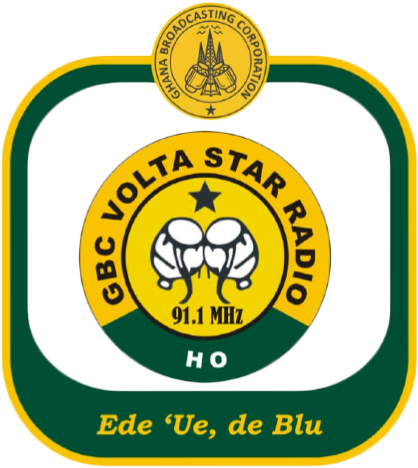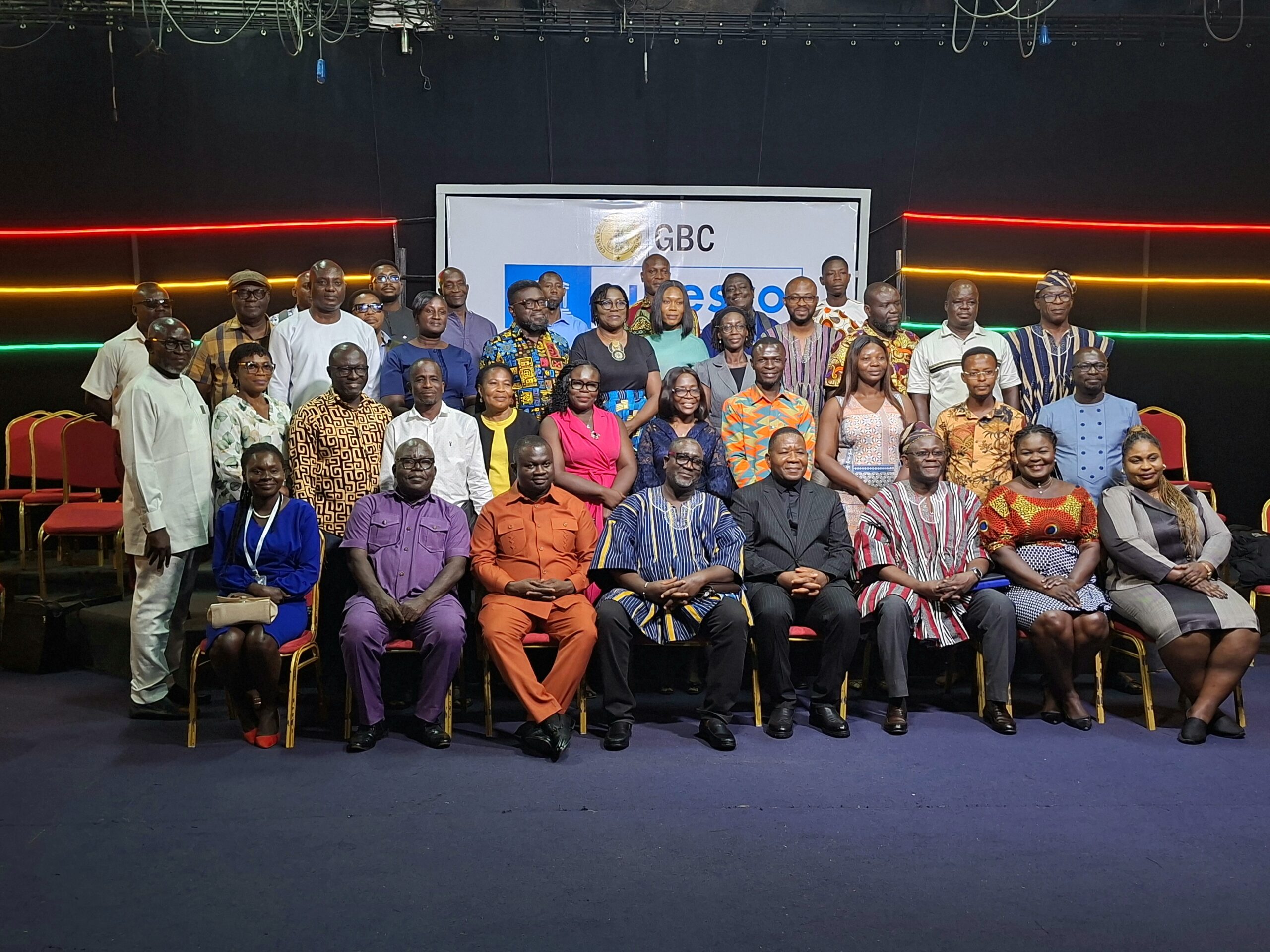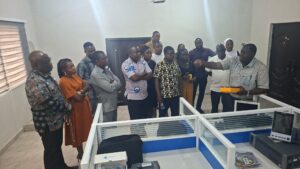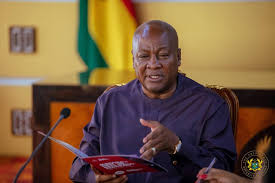By Jones Anlimah
The Ghana Broadcasting Corporation (GBC), in collaboration with the United Nations Educational, Scientific and Cultural Organization (UNESCO), has commenced a two-day training workshop on “Compliance with Regulatory Standards and Media Viability” for Public Service Broadcasters and Community Media stakeholders in Accra.
The workshop seeks to deepen participants’ understanding of ethical reporting, regulatory standards, and innovative strategies to sustain media operations in a rapidly changing environment.
Opening the training, the Director-General of GBC, Professor Amin Alhassan, urged participants to look deeper in their reporting and not miss the stories behind the headlines. He expressed optimism that the training would help journalists overcome challenges in writing compelling and impactful news stories.
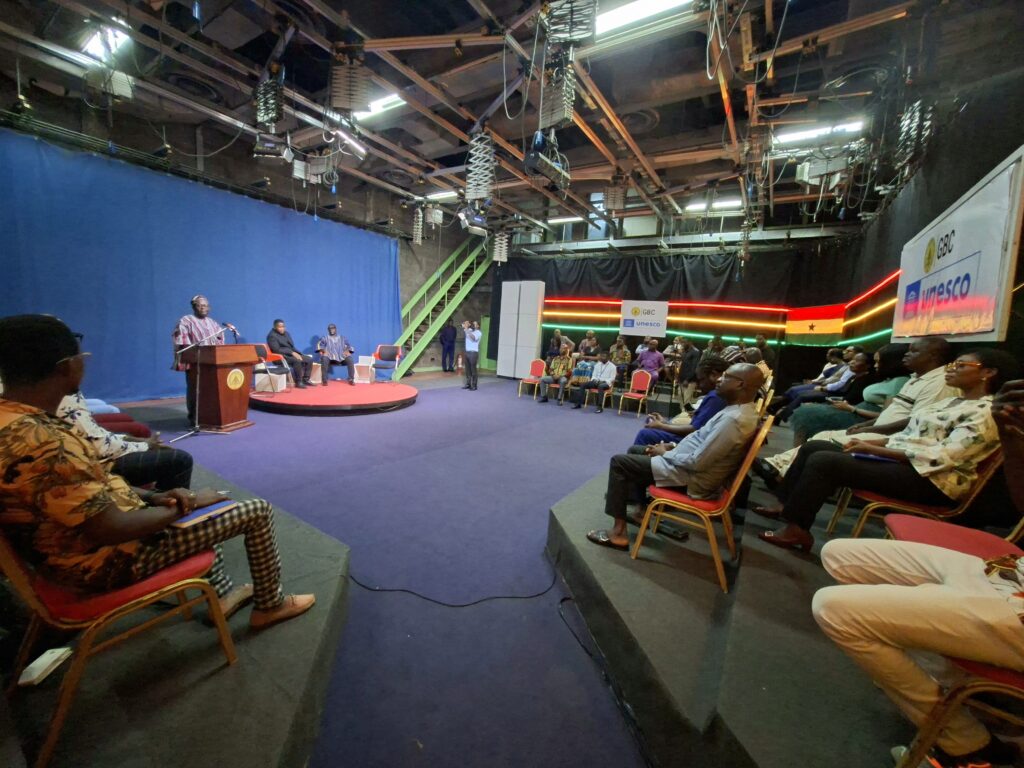
“Our role as journalists goes beyond information delivery. We must develop the curiosity and discipline to uncover stories that shape national conversations. This training will help us catch up on the challenges we face in crafting news stories that are both compelling and responsible,” Professor Alhassan noted.
The Executive Secretary of the National Media Commission (NMC), Mr. George Sarpong, in his address, emphasized the importance of ethics, compliance, and viability in maintaining strong and professional media institutions. He said the sustainability of both public and private media rests on a consistent commitment to ethical practice and regulatory adherence.
Delivering a message on behalf of UNESCO, the Representative and Head of the Accra Office, Mr. Edmond Moukala, said the training is designed not only to strengthen participants’ understanding of regulatory frameworks but also to equip them with tools to innovate and adapt.
“We hope this will spark stronger collaboration among broadcasters, regulators, and civil society to ensure that Ghana’s media remain independent, vibrant, and publicly accountable. As we look ahead, our vision is also to give visibility and recognition to the very instruments that made Africa’s media strong.” he said.
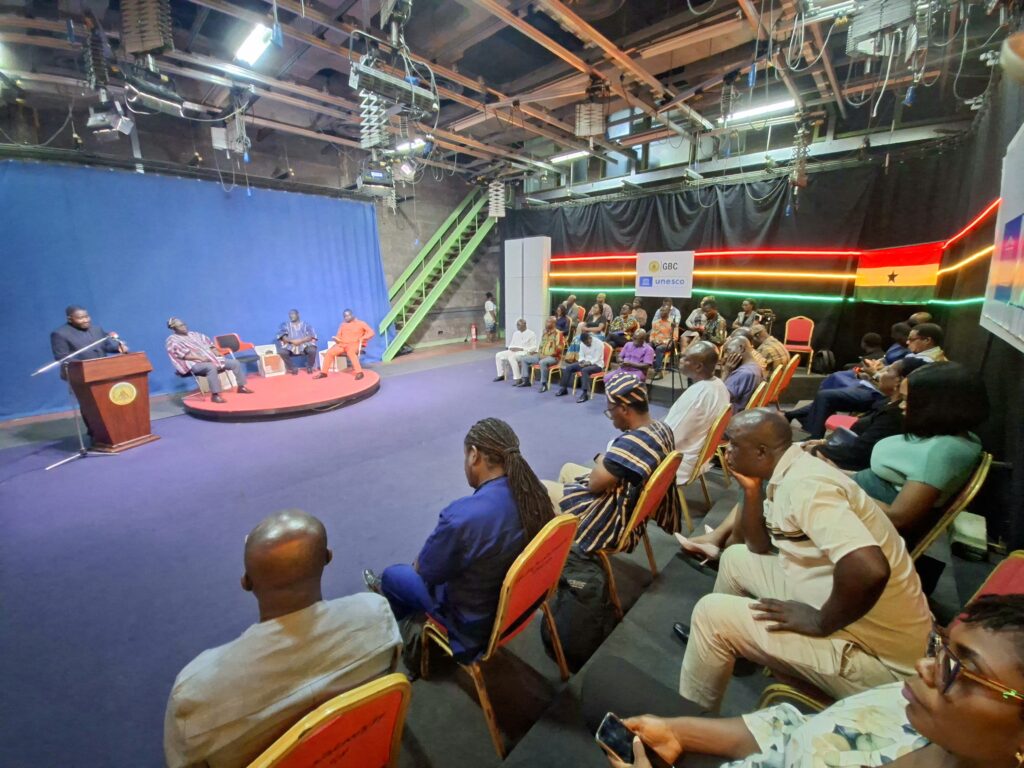
The President of the Ghana Journalists Association (GJA), Mr. Albert Kwabena Dwumfour, commended GBC and UNESCO for the initiative, adding that the Association supports every effort to build the capacity of journalists in today’s dynamic media landscape.
“Continuous professional training is the only way we can keep pace with global trends and maintain the integrity of our work as journalists,” he stated.
Participants drawn from GBC regional stations, community radio networks, and other media organizations are expected to explore topics including media law and policy, ethical reporting, compliance mechanisms, and innovative approaches to media viability.
The training forms part of ongoing efforts by GBC and UNESCO to promote professionalism, accountability, and innovation within Ghana’s broadcasting space.
